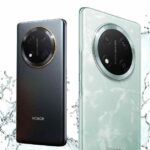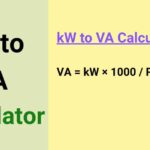There is always some curiosity, do air conditioners purify air? Some air conditioning units (ACs) have self-purification technology even though their core function is to regulate the indoor temperature and help in moisture removal.
But will these make any positive changes to indoor air quality the same way a portable air purifier does?
Research shows that, when fitted with HEPA filters or ionizers, certain sets of air conditioners are capable of capturing particulates such as dust, pollen, and other particulates that pollute a room.
But still, these units are not effective as air purifiers that are purpose-built to eliminate a wide variety of contaminations including gasses and microorganisms.
In this article, we’re going to explain the working mechanism of the air conditioner, its air filtration properties, if any, and whether it could be described as an instrument for air purification.
We will also help you choose the best air purification solution by analyzing how air conditioners compare to air purifiers.
How Do Air Conditioners Work?

Let us first establish the central objective of air conditioners before we focus on air purification. The purpose of air conditioners is to cool air by getting rid of the heat and humidity in the surroundings.
Refrigeration is achieved by compressing and circulating a coolant which absorbs heat energy, thereby reducing the temperature of indoor air.
This system which is not specifically intended for air purification, provides a standard filtration system that most air conditioners have, filters intended to capture excessive amounts of dust, pollen, hair, and skin particles.
These filters keep the cooling coils clean and the airflow unimpeded.
The general function of air conditioning filters is to enhance indoor air quality by eliminating rough particles such as dust and mold, which are dispersed in the ventilation system. This leads to the question: Can air conditioners purify air, or is that the job of an air purifier?
Do Air Conditioners Purify Air?
To answer the main question: Standard air conditioners do not purify air. They do utilize some air purification processes – the most noticeable of them is the intake and pressing out of working circulatory air for dust and certain allergic particles.
Still, fine pollutants such as mold, spores, and gasses like VOCs that are commonplace in a person’s indoor spaces are left behind. Some advanced air conditioners come with additional features such as:
#1. HEPA Filters:
Some can capture at least 99.97% of filtrates which are larger than 0.3 microns in size. However, HEPA filters do improve the air quality in places where air-conditioners or AC units are used.
#2. Ionizers:
Others contain negative ions that bond with and therefore capture physical contaminants that reside air in this case, specks of dust or smoke in the air.
#3. UV Filters:
Some of the more expensive AC units come with UV light filters that also help to eliminate bacteria and viruses, however, this technology is usually associated more with air purifiers.
Note: Therefore, even though an air conditioner with these features may help to some extent improve indoor air quality, it is unlikely to be as efficient as an air purifier with some specific functions.
Does Air Conditioning Help or Harm Indoor Air Quality?
Cooling and dehumidifying the air is one of the major functions of air conditioners in the indoor climate but different units have different indoor air purification effectiveness.
#1. How Air Conditioning Helps:
- Filtration of Particles: Simply by removing particulate matter from the air, air conditioners to some extent improve the quality of indoor air by trapping dust, pollen, and large allergens through the filters.
- Dehumidification: Also, high humidity levels indoors can be a cause of mold and dust mites. By lowering indoor humid levels, ACs help to inhibit the conditions that allow these pollutants to thrive.
#2. How Air Conditioning Can Harm:
- Limited Pollutant Removal: Most AC units don’t remove smaller particles like PM2.5, bacteria, or gaseous pollutants, which means indoor air may still contain harmful contaminants.
- Dirty Filters: If the AC filters are not cleaned or replaced regularly, they can become clogged, allowing dust and pollutants to circulate back into the room, reducing air quality.
To get the most out of the air conditioning, it is best to have it regularly maintained and also the filters cleaned.
Together with an air purifier, Air conditioners can assist in the achievement of a better environment indoors.
Types of Air Conditioners with Air Purifying Features
If you want a device that cools your room as well as performs other functions, certain air conditioning units have been designed to incorporate air purification capabilities. Let us take a closer look:
#1. Window Air Conditioners with HEPA Filters
HEPA filters are available with some window AC units. These filters can trap some specific pollutants that range in size from 0.3 microns such as dust, pollen, and spores of mold.
Though this is an improvement on the existing filtration capabilities, it is not as intensive as a complete air purifier would be.
#2. Split Air Conditioners with Ionizers
Ionizer split ACs are more proficient in the removal of air pollutants from the surrounding environments.
The ionizers produce negative ions that stick to the airborne pollutants which are then collected by a filter system that comes with the unit.
Although this reduces particulate matter, however, it does not eliminate gases or microscopic pollutants.
#3. Portable Air Conditioners with Air Purifying Features
Many portable air conditioners can cool and purify the surroundings also, these usually include some carbon filters or even UV lights which assist in removing bacteria and bad odors.
Nonetheless, their general filtration efficiency is insufficient when compared to independent air purifiers.
Also Read: Top 10 Best AC Company in India.
Common Air Conditioning Myths.
#1. Does Air Conditioning Clean Air of Smoke?
Air conditioners are thought by many to desalinate smoke; however, this is not entirely true. AC filters are rated and built for larger and more common particles, which in the case of smoke can be around 0.1 microns.
You will require AC units equipped with HEPA filters or portable air purifiers to get rid of smoke from the air completely.
#2. Do Air Conditioners Take in Air from Outside?
Another common myth is that air conditioners bring in fresh air from outside. In reality, most AC units recirculate the air inside your room rather than drawing in air from outside.
This means that if the indoor air is polluted, the AC will continue to circulate the same contaminants. To improve air quality, consider opening windows for ventilation or using an air purifier in conjunction with your AC.
#3. Does AC Cause Air Pollution?
Air conditioners in and of themselves are not the source of outdoor pollution; however, they can create bad air quality indoors if some unit maintenance is not performed.
Dust or bacteria growth in some filters may flush substances that should remain inside the AC unit and it is also possible that the energy required for running the units could also be produced using fossil plants causing environmental pollution.
When a person regularly utilizes energy-saving units along with cleaning them, the effects are rather brief.
#4. Can an Air Conditioner with a Purifier Completely Replace an Air Purifier?
An AC with an inbuilt air purifier such as those with ionizers or HEPA filters can still go a long way in cleaning the air but may not offer the same effectiveness as an air purifier on its own.
Since the air purifying features available in AC units are always secondary to the cooling function provided, this means they are unlikely to target the smallest of particles or eliminate a great number of gases.
If improving the quality of air is of utmost importance, it is advisable to go for a dedicated air purifier better option.
#5. Does Using an Air Conditioner Make You Sick?
It is often heard that air conditioners can lead to airborne diseases which is not completely true.
This is received especially by those people who often have sore throats or feel the urge to sneeze.
In truth, it is the dirt filter or dry parts of the AC that are responsible for triggering disease because it can induce allergies or respiratory problems.
Cleaning the AC unit, replacing or cleaning the filters on regular occasions, or even using a humidifier can resolve these problems.
Pollutants and Allergens: What Can Air Conditioners Remove?
Although basic air conditioners work well in eliminating big particulates like dust or pet dander, they may find it nearly impossible to eliminate more minute and perhaps the most dangerous contaminants that can affect indoor air quality. Now let’s see what both ACs can and cannot eliminate:
#1. What Air Conditioners Can Remove:
- Dust: Dust suspended in the air is collected by the basic Filters of the air conditioning unit and reduces indoor dust.
- Pollen: If you have a pollen allergy, an air conditioner with a good filter may retain some of the pollutant’s pollen.
- Pet Dander: An AC can also be used to filter out pet dander, which is a well-known allergen.
#2. What Air Conditioners Can’t Remove:
- Fine Pollutants: Even the presence of a standard filter in a household cannot suffice to trap the deadly fine particle pollution PM2.5 which is extremely dangerous for the lungs.
- Mold Spores: There may be some filters that may be able to capture large mold spores but about the killing of mold, it is still bound to thrive in wet conditions.
- Bacteria and Viruses: Most common air conditioning systems simply do not neutralize micro-organisms even though some types do come with a built-in UV filter that can significantly reduce the amount of bacterial growth.
- Gases and VOCs: An air conditioning system will not be able to filter out any organic chemicals such as VOCs released from home products like furniture, paints, and cleaning agents.
Air Conditioner vs. Air Purifier: Key Differences.

Many people use the terms ‘air conditioner’ and ‘air purifier’ interchangeably, but they are two different appliances that should not be confused with each other.
Air Conditioners:
Mostly designed for cooling and dehumidification of rooms. Additionally, they are equipped with primary filters that can protect against particles the size of dust or pollen. However, no air conditioner is capable of purifying air on a cellular level.
Air Purifiers:
These appliances possess the characteristics that remove dust and allergens along with bacteria or gaseous compounds like VOCs.
HEPA filters augmented with activated carbon and UV filters are the most common types installed in an air purifier.
Additional Tips to Improve Indoor Air Quality.
Although an air conditioner can help with improving a high-level indoor environment, perhaps, this is not enough to guarantee good air quality. Here are additional tips:
#1. Use a Standalone Air Purifier:
It is a good practice to combine an air conditioner with an air purifier. Choose purifiers that incorporate HEPA and activated carbon filters.
#2. Improve Ventilation:
Open doors and windows now and then to freshen the air and decrease indoor contaminants.
#3. Add Indoor Plants:
Plants like peace lilies and spider plants can help in absorbing harmful substances from the air.
#4. Regular Maintenance:
Make a habit of cleaning your AC filters because if they are dirty, they won’t be able to function well.
Pros and Cons of Air Conditioners for Air Purification.
Here’s a quick summary of the pros and cons of using an air conditioner for air purification:
Pros:
- AC filters help get rid of larger dust and pollen particles and aid in indoor air circulation.
- Some certain AC systems cool the room and slightly clean the air, within one single system.
- Higher units are likely to be furnished with ionizers or UV filters to further increase air quality.
Cons:
- Low-grade air conditioners are incapable of capturing fine particles, spores of mildew, and gases of VOCs.
- Using an AC and adding filtration features to it risks using more energy, compared to using separate air purifiers.
- In general, air conditioning systems with advanced air-purge technology are priced higher than standard devices.
FAQs
Does an air conditioning system clean the air?
Yes, the air conditioners are able to some extent help clean the air. Many air conditioners come with simple filters that can be used to effectively capture dust, pollen, and other associated large particles, however, they do not eliminate every pollutant. For deeper air purification, other air purification systems or ACs offer advanced air filters which can include HEPA filters.
Can an air conditioner improve air quality?
Yes, air conditioners can be used to lower the humidity level, help in air movement, and remove large particles of dust and pollen from the air thereby improving the quality indoors. However, fine pollutants, bacteria, or allergens are not the targeted audience for these air conditioning units, hence an air purifier may be required.
Can aircond purify air?
Air conditioners serve the purpose of cleaning and cooling the air whilst getting rid of dust and allergens. However, smaller pollutants like bacteria, viruses, or smoke would have to be ignored as they cannot be filtered. More comprehensive air solutions such as air purifiers allow for A complete purification of air.
Do air conditioners bring in fresh air?
No, the majority of classic air conditioning units do not operate in fresh air. They do not introduce any additional outside air into the building; these air conditioning units simply cool indoor air that has already been recirculated. You may need to open the windows to improve ventilation or utilize a system specifically designed for that purpose like a fresh air ventilation system or AC.
Do I need an air purifier if I have AC?
Yes, even if you have an AC, you may still need an air purifier. The main function of air conditioning is to make the air cooler and to some extent to also suck out some dust, however, there are no fans that will blow away smaller pollutants which include smoke, bacteria, or VOCs. An air purifier can target those contaminants and enhance the air quality.
conclusion
In conclusion, do air conditioners purify air? While they can improve indoor air quality by removing dust or pollen, the air is not completely free from pollution.
Models equipped with advanced filters like HEPA or ionizers do have some air-cleaning advantages, but there is no beating an air purifier when it comes to air cleaning. If the goal is to maintain healthy air, it makes sense to use both an AC and an efficient air purifier.
We’d love to hear your thoughts—have you noticed a difference in your air quality with your air conditioner? Please tell us about your feelings in the comments below!










